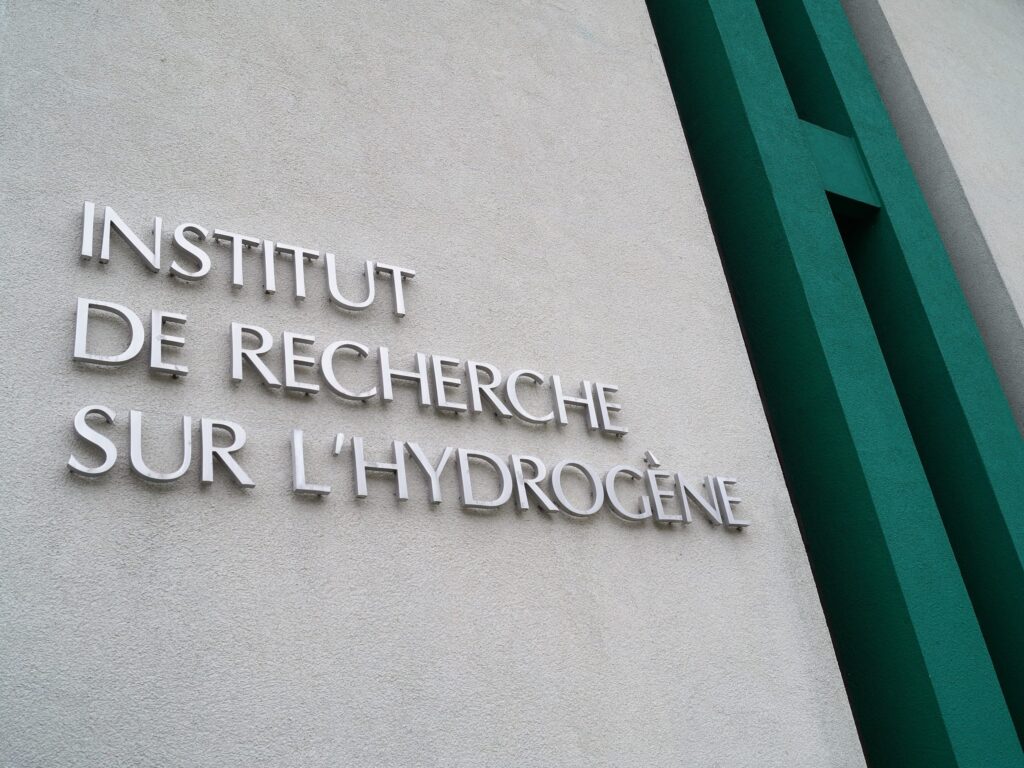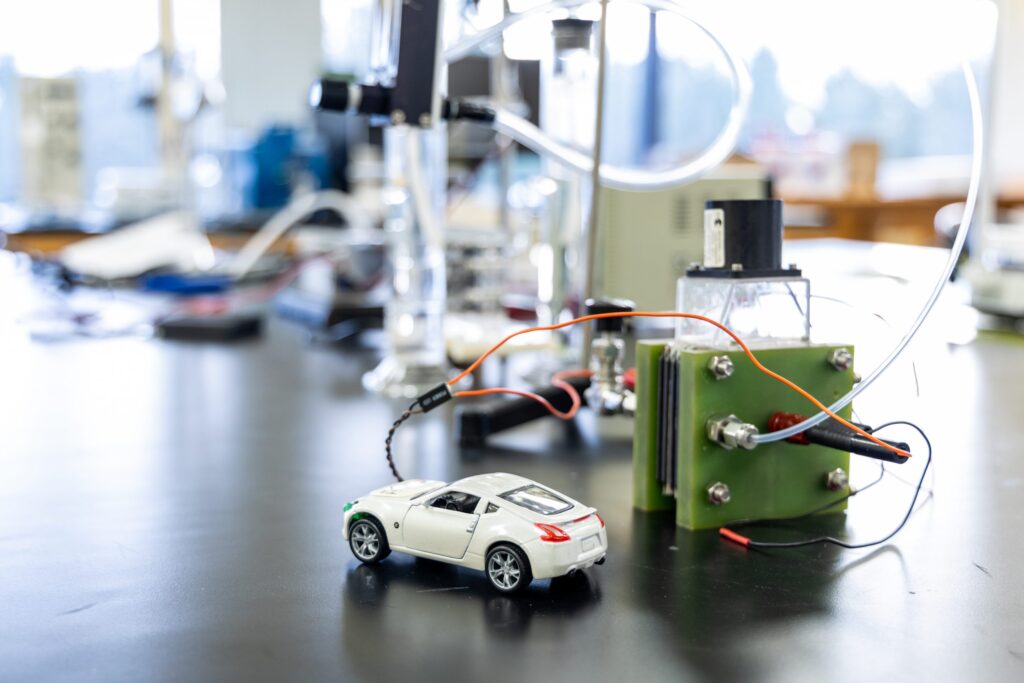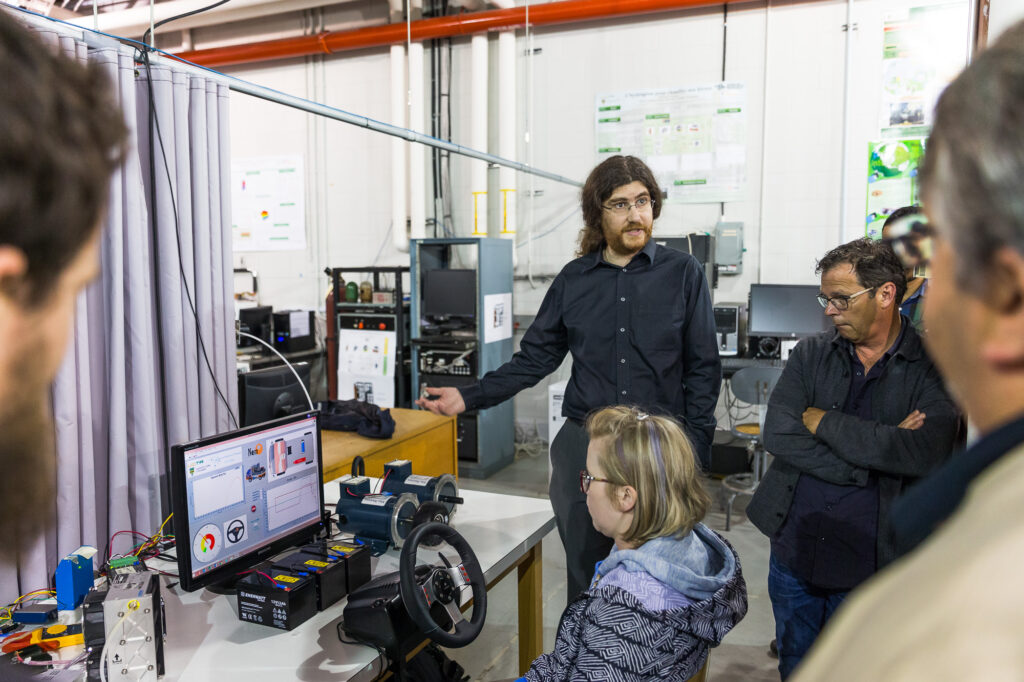Created in 1994, the Hydrogen Research Institute (HRI) of the Université du Québec à Trois-Rivières is one of the most experienced and recognized centers in the field of research and development of hydrogen technologies. The HRI’s mission is to respond to the climate emergency through education, research and innovation in materials and sustainable energy systems.

HRI’s vehicle entirely powered by hydrogen
As a dynamic and multidisciplinary institute (physics, chemistry, engineering), the HRI team includes 13 researchers and nearly 100 students whose activities are divided into four research themes:
• Production, storage, distribution and use of hydrogen.
• Smart grids and management of renewable energy systems.
• Electrification of transportation and smart mobility.
• Innovative materials for the transition to sustainability

A unique know-how driving the energy transition
The team holds three Canada Research Chairs in hydrogen production, fuel cells and intelligent vehicles. The production of renewable hydrogen (H2R), via water electrolysis, biomass conversion and solar technologies, involves many issues that the HRI is addressing to foster its competitiveness. Its uses in the context of transition are multiple, ranging from reducing greenhouse gas (GHG) emissions in the process industry and transportation sector to managing renewable energy.


The HRI is anchored in several structuring projects including:
• Three research chairs in partnership with industry: Hydro-Quebec, Noovelia and Innergex aimed respectively at optimizing residential energy management, intelligent navigation of autonomous industrial vehicles and H2R production.
• The deployment of the Vallée de la transition énergétique interregional innovation zone aimed at decarbonizing the industrial-port and urban environments of the cities of Bécancour, Trois-Rivières and Shawinigan.
• The Réseau québécois sur l’énergie intelligente, which received an investment of $12.5M with Escouade énergie as part of the Québec Green Hydrogen and Bioenergy Strategy.
• The First Research project “Accelerating Community Energy Transformation” lead by the University of Victoria, where HRI’s ambition is to develop an electrolyser for the production of hydrogen directly from seawater.


In addition to these projects, the HRI participates in various working committees including the International Energy Agency’s Technology Collaboration Programme, as well as in the Council of Engineers for the Energy Transition, an independent expert advisory body supporting the United Nations in achieving its goals for sustainable development and reduction of GHG emissions.

Through its work on renewable energy, innovative materials and technology, the HRI has participated for over 30 years in the energy transition.















